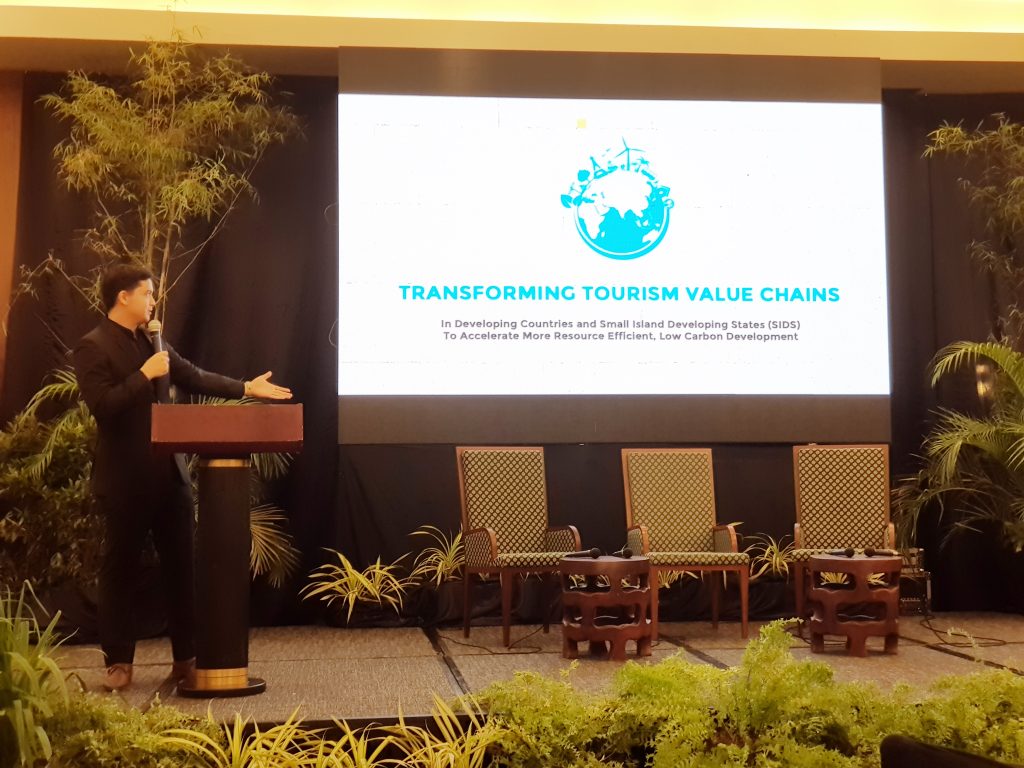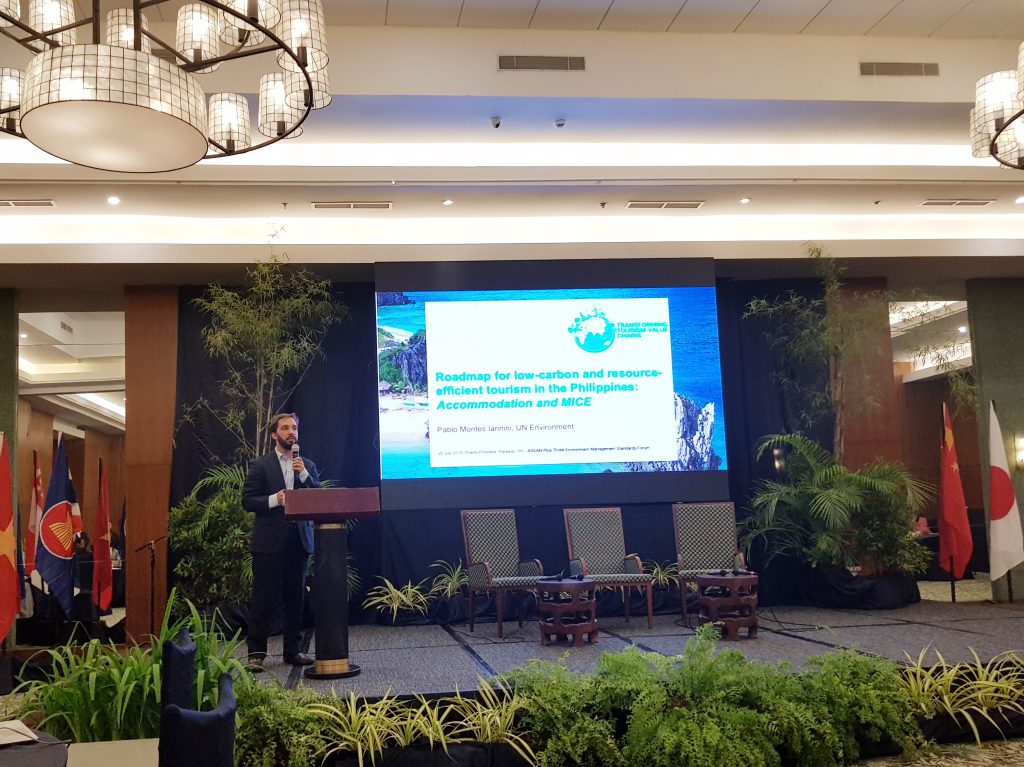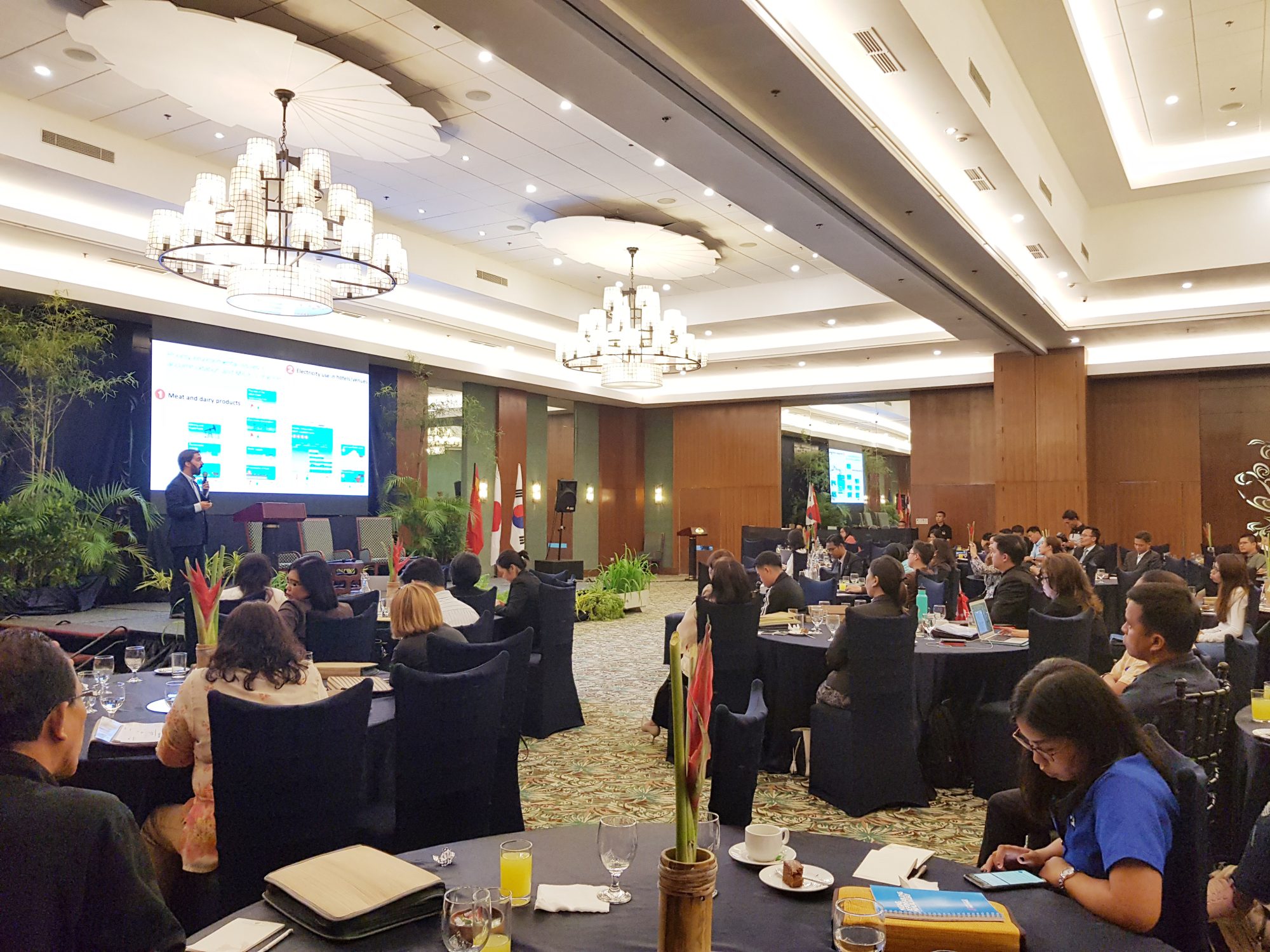Last July 25, 2019, the Transforming Tourism Value Chains project launched the Roadmap for Low-Carbon and Resource-Efficient Tourism in the Philippines for Accommodation and Meetings, Incentives, Conferences, and Exhibitions (M.I.C.E.) at the ASEAN Plus Three Environmental Management Standards Forum organized by the Philippine Department of Tourism.
The forum showcased the recognized best practices of the ASEAN Member-States and Plus Three countries (Japan, China and Korea) in addressing the different environmental issues that affect the tourism industry. It also sought to develop the Environmental Management Standards that will eventually be adopted by the ASEAN and plus (3) three countries.

In the last session of the program, Project Officer Mr. Kiko Velhagen presented the Transforming Tourism Value Chains project to demonstrate the Philippines’ best practices in reducing greenhouse gas emissions and promoting resource efficiency in the accommodation, MICE and food & beverage sectors. He highlighted the effects of climate change in the country, and how these would affect the increasing growth and development being experienced by the tourism industry. He then emphasized how greening this industry should be a collaborative effort across all sectors, from product/service providers, supply chain related businesses, government and consumers.
After presenting the project’s timeline and updates, Mr. Velhagen briefly presented the project tools that hotels and other accommodation establishments can use to monitor their resource efficiency and greenhouse gas emissions in their operations. He also stated that the project is guided by the views of the Roadmap, which was formally presented by the next speaker, Mr. Pablo Montes Iannini.

As the Value Chain and Private Sector Analyst from the United Nations Environment Programme (UNEP), Mr. Iannini emphasized on the significance of the Roadmap for Low Carbon and Resource Efficient Tourism in the Philippines, as tourism stakeholders from the value chain envisioned the country being enhanced as a globally recognized tourism destination. Presenting the environmental issues in the value chain, Mr. Iannini identified six areas cross-cutting across the value chain that produced the highest amount of greenhouse emissions: meat and dairy products, electricity use, farming and beverage production, food waste, water use and pollution from liquid and solid waste.
These priority issues in the value chain need to be addressed by systemic solutions and ambitious targets, in order to mitigate their effects as much as is possible. The four systemic solutions that have been identified, after numerous workshops with relevant tourism stakeholders, are as follows: Sustainable Food Value Chains, Sustainable Events, Beating Pollution, and Sustainable Energy. Some of the systemic solutions require activities such as measuring and monitoring food waste reduction, ensuring enabling policies and institutional support, eliminating the use of single use plastics and building smart hotels and venues for the future. Mr. Iannini then discussed an action plan to jumpstart the implementation of the Roadmap, putting forward and prioritizing actions and targets in sectoral roadmaps and deploying capacity building activities to achieve the sector’s vision of the Philippines being enhanced as a globally recognized tourism destination.


